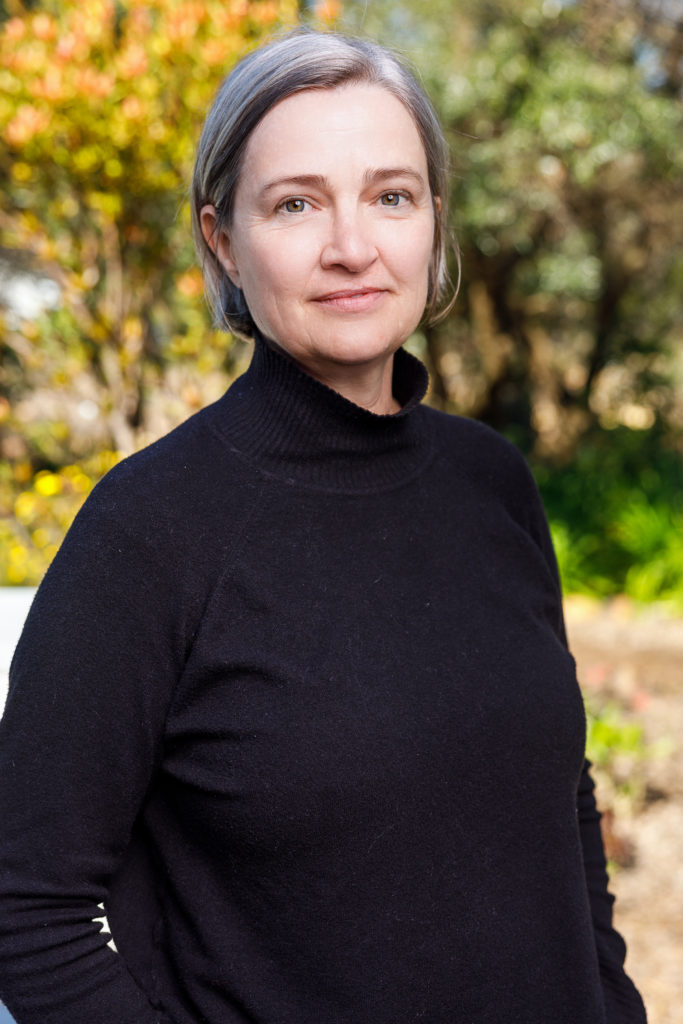“Where are the women? The arts reflect the world in which they are made and the voices of women are quietened, pushed to the background, if not suppressed altogether, particularly in a society as patriarchal as South Africa’s. Opera, as a multidisciplinary art form, seems the obvious place in which to give women’s stories voice. Yet this is proving almost impossible in an arts field that prioritises funding for men’s voices, men’s stories, or, at the best, women’s stories but told by men and from the male perspective,” said composer Clare Loveday, STIAS Artist-in-Residence.
“I’ve been very involved in promoting women in music for the last ten years. There is a glass ceiling in South Africa. I want to raise that ceiling for younger woman coming up the ranks. We are losing young musicians. I see younger women leaving the country for long-term careers overseas. Women’s voices are not heard in the space and women are often caricatured in operas. The masculine character of composition – seen as bold and confident – and the veneration of male composers of the past is still strongly valued. I don’t want to do tributes but to explore new ideas.”

And Loveday likes to use her music to challenge. In her introduction fellow Fellow Carina Venter said: “Clare does not do easy. She is known as a composer of post-tonal music which does not obey the rules and conventions. Clare’s career is one of refusals – refusals of gendered norms and easy answers. Her music is characterised by asking difficult questions and by fearless joyousness.”
Loveday is at STIAS to continue work on the provisionally titled Where Does the Air Go? – an opera she has been working on since 2021 .
“I’m reporting on a work in the middle of doing,” she explained. “I’m the middle of unresolved issues, on floaty ground. Most operas take at least 15 years. The current phase is the creation of a song cycle (a set of related songs sung as a unit) with an eye (and ear) to the larger work. In true South African style, we’ve thrown everything and the kitchen sink at it.”
She also noted, “I don’t have a massive interest in opera because of the absurdist elements but I saw this as an opportunity to get women together to tell women’s stories performed by women.”
The project is using an existing work, You Will Find Your People Here, a collaborative project with author Caroline Wanjiku Kihato and pianist Mareli Stolp, which focuses on the daily life experiences of migrant women in Johannesburg. It was premiered at the Centre for the Less Good Idea (founded by William Kentridge) in July 2022. (Watch it at https://www.youtube.com/watch?v=rfqU1dKnBXg). Loveday played snippets from this in the seminar centred on themes of domestic violence and the daily fears experienced by these women.
The idea behind the song cycle is to use this piece as a starting point with additional text drawn from women’s daily experiences of life in South Africa.
“We are exploring ideas and themes that could apply in the opera.”
“You Will Find Your People Here was also the most difficult work I have ever done,” she added. “It’s setting stories of vulnerable women to music. You have to take care not to cheapen, not to insert yourself, and of the need to elevate.”
The idea of breath underlies the actions and draws people in. “I’ve also been thinking about breath for a long time,” she explained. “Breath is used to create tension and stress. I’m looking at how women breath, how breath is used to layer meaning in the experiences over a woman’s day. I’m trying to write music so still it creates the effect of breath in the audience. The way women walk, chatter, breathe. It’s all immensely musical.”
This involves experimenting with multiple techniques. “I’m trying to create a feeling of suspension – by using open chords the music holds you and gives time to think about what was just said. People listen when things are quiet. You have to give people time to resonate with what is said instead of rushing to the next thing. Seeing how much tension you can create with as little as possible.”
Women working collaboratively
Loveday stressed the importance of collaboration – describing the work as being created through workshops, endless conversations with groups of women, making, staging and trying out to see what works.
“The idea of a solo authoritarian opera composer is Western and very Romantic thinking. I’m more interested in collaboration,” she said.
She also pointed out that she is not interested in writing for trained opera voices, using actors and other women instead. “I’m interested in using the voices of everyday women – it brings a different sound colour to the work. We are also exploring unexpected uses of the voice – Sprechgesang (speak-singing) but not in the traditional form. It’s very expressive and a good technique for non-singers. Music theatre but not musical theatre – looking at new ways of combining music and breath. It’s also a woman’s opera – men’s voices are not welcome.”
“We are exploring the sounds, textures and colours of South African female voices and the different effects instrumentation can have.”
“Right now we are in the state of starting to think of visual cues for the possible, maybe, sometimes, eventual opera.” she added.
In discussion asked about the use of AI in music composition, she replied: “I made a decision to only work with living music. I like the mistakes people make. I don’t write music for music, I write music for people. AI in music has a road to travel but not in this project. I like the physical, visceral production of music, the non-replicability of human performance. Magic happens in the mistakes.”
Michelle Galloway: Part-time media officer at STIAS
Photograph: Noloyiso Mtembu
